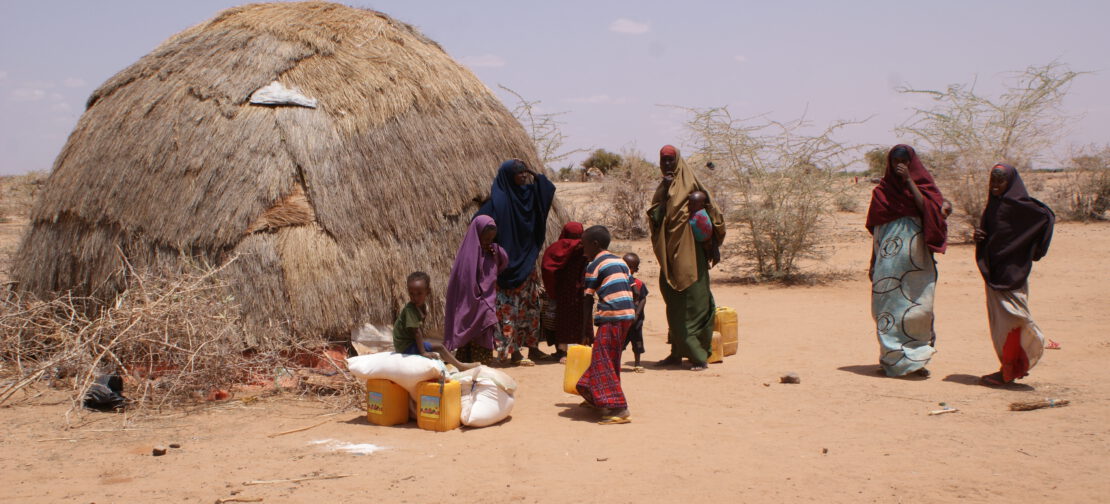
Water is the foundation of life, yet in Somalia it remains one of the scarcest and most contested resources. Recurrent droughts, fragile infrastructure, and the ongoing impact of conflict have left millions without reliable access to clean and safe water. The 2017 drought was a stark reminder of how deeply water scarcity undermines food security, public health, and community stability. As crops failed and livestock perished, families were forced to leave their homes in search of food and water. According to UN estimates, over 3.1 million people required urgent humanitarian assistance during that year. HIRDA responded to this crisis by prioritizing clean water access as both an emergency lifeline and a cornerstone of long-term development.
Our immediate interventions focused on ensuring that displaced families and drought-affected communities had access to safe drinking water. Through partnerships with donors and the Somali diaspora, HIRDA distributed water to households in central and southern Somalia, reaching thousands of vulnerable people. These distributions were not isolated efforts but part of a coordinated emergency relief strategy that also included food aid and nutrition support. By integrating water supply with broader relief operations, we were able to address multiple layers of vulnerability at once.
At the same time, HIRDA understood that emergency trucking and short-term supplies could not solve Somalia’s water crisis. Sustainable solutions were needed to prevent the cycle of drought, famine, and displacement from repeating itself. Guided by this vision, we supported communities in developing strategies for long-term water management. This included investment in infrastructure such as wells and storage facilities, but also education on hygiene and sanitation practices. By teaching families about handwashing, safe water handling, and waste disposal, we reduced the spread of waterborne diseases such as cholera and diarrhea, which often increase during drought emergencies.
Schools and health centers were also central to our water access programs. In 2017, HIRDA linked water and sanitation interventions with education initiatives, recognizing that children cannot learn if they are sick or forced to fetch water for hours each day. By constructing latrines, providing clean water in schools, and training teachers to promote hygiene awareness, we improved both health outcomes and school attendance. These investments ensured that education continued even under the harshest circumstances, protecting children’s rights and futures.
Community engagement was another pillar of our approach. HIRDA believes that sustainable water access depends on local ownership. We worked closely with village elders, women’s groups, and youth organizations to design and maintain water facilities. By involving communities directly, we created accountability and fostered resilience. The result was not just infrastructure, but empowered communities capable of managing resources for the long term.
Clean water is more than a basic service, it is the foundation upon which other development goals depend. It enables nutrition programs to succeed, supports maternal and child health, and strengthens livelihoods by sustaining agriculture and pastoralism. For HIRDA, clean water access is therefore not a separate cause but one that connects across our work in health, relief, education, and gender empowerment.
In the face of ongoing droughts and climate pressures, HIRDA’s clean water access programs remain critical. By combining emergency relief with sustainable development, we aim to break the cycle of crisis and help Somali communities build healthier, more resilient futures. Water, in its simplest form, becomes not just survival, but the key to dignity, opportunity, and peace.